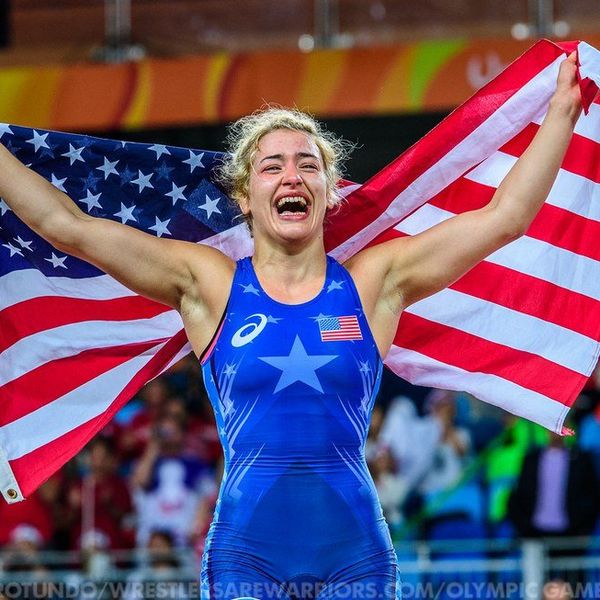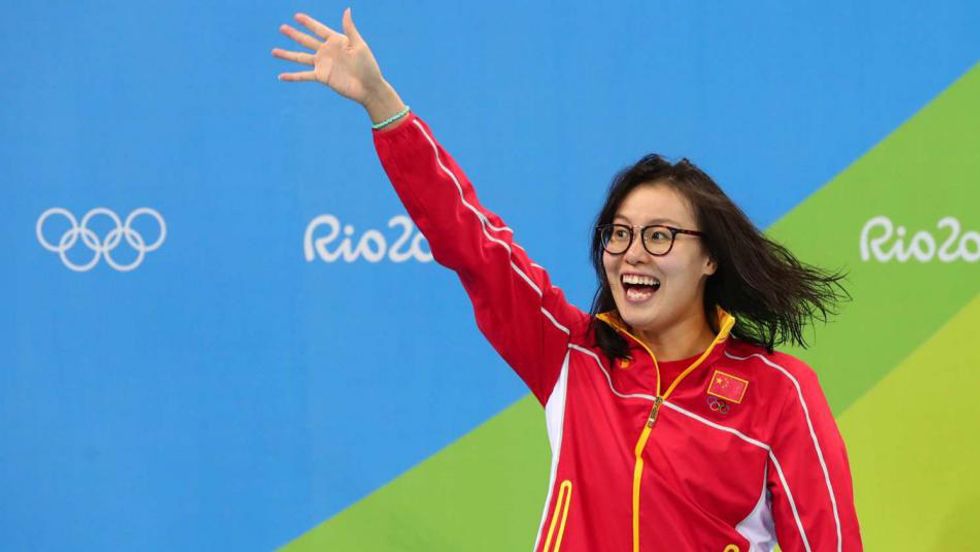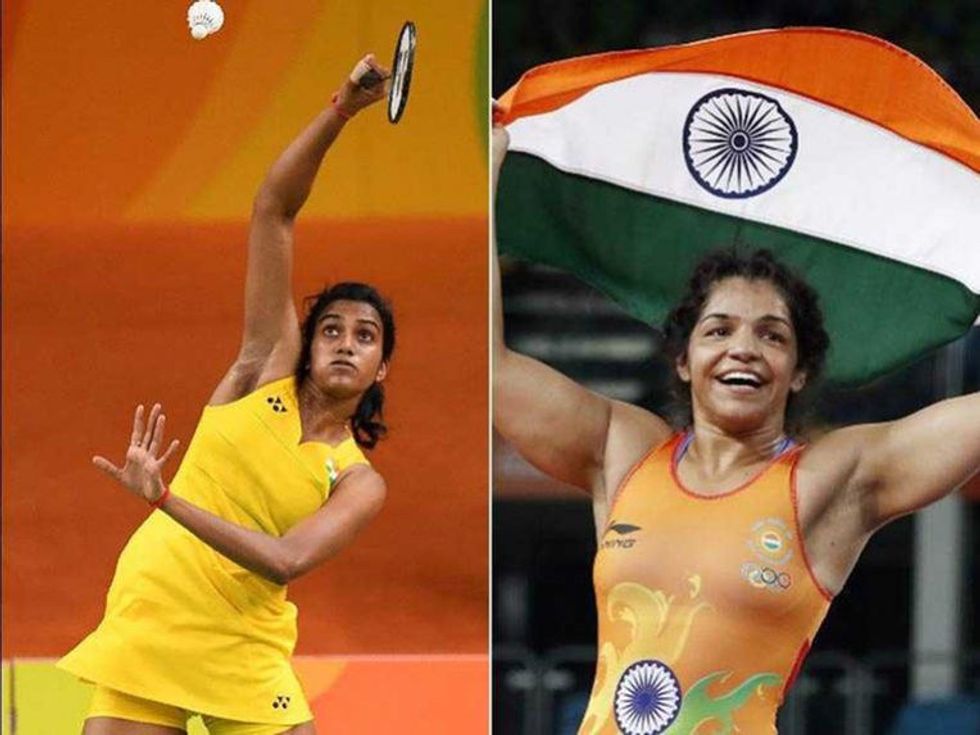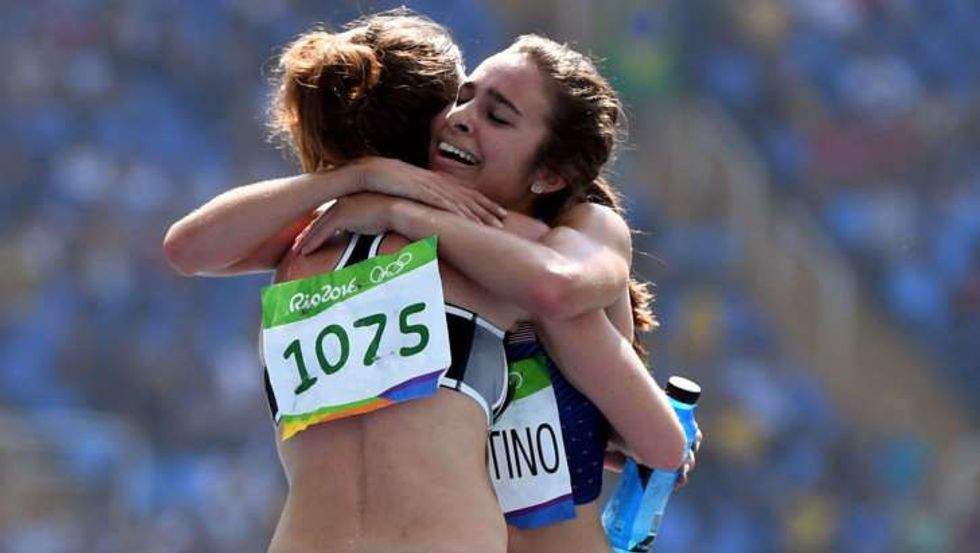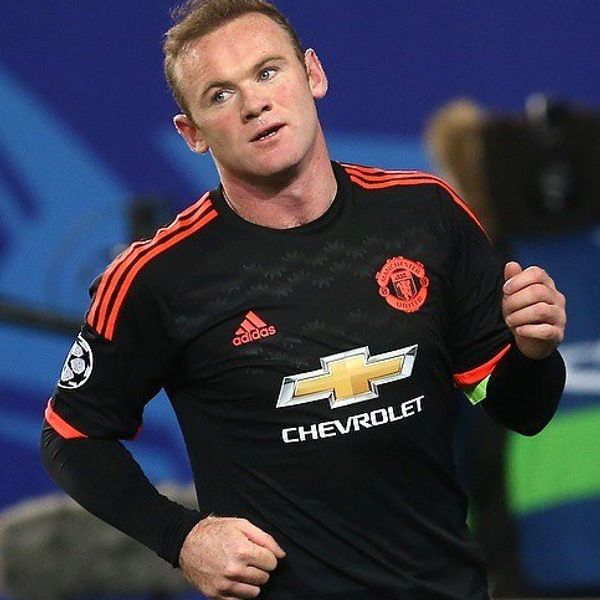Last week, I wrote about the female athletes at Rio’s Summer Olympics who have impressed and amazed the world with their feats of physical prowess and good sportsmanship. There are far too many to cover in only one article! Let’s look at the women who continued to wow, and the new names that have risen to prominence.
Fu Yuanhui
20-year-old Chinese swimmer Fu Yuanhui won a bronze medal in the women’s 100 m backstroke, but is a gold star to many followers in China. Now known for her expressive face and exuberant, candid words, Fu first gained attention after expressing surprise to a reporter at having gone so fast in the semifinals (she didn’t know her time), then later being overjoyed after the finals on August 8 when told that she had actually won a medal. After controlling herself, she remarked to the reporter, “Not bad at all”—a true understatement. Fu’s unbridled happiness at achieving a medal, the fact that she doesn’t care that it’s not a gold, and her satisfaction at achieving a personal goal, make her an anomaly in Chinese sports, where the state system has long emphasized the honor of the country above the achievements of the individual.
But Fu is not all silly expressions. On August 14, Fu finished fourth in the women’s 4x100 meter medley relay. When an interviewer asked if she was ok, Fu replied that she didn’t swim her best and let her teammates down because “(My belly hurts) because my period came yesterday…but this is not an excuse. Anyway, I didn’t do well.”
And as casually as that, Fu lifted the curtain on a topic that is taboo in China and much of the rest of the world. Menstruation and menstrual products are not openly spoken of in China, and tampons are extremely difficult to find in Chinese pharmacies due to the mistaken idea that tampons would damage a woman’s virginity (and therefore, desirability).
(Pictured: P.V. Sindhu (left) and Sakshi Malik)
The Women of Team India
India currently has a skewed gender ratio (favoring sons) and struggles with gender equality; the state of Haryana has one of the worst skewed ratios, resulting in a deficit of eligible brides and a campaign being launched to bring about a gender balance. It’s, therefore, ironic that India’s female athletes are the ones making waves at the Olympics and making their country proud. Gymnast Dipa Karmakar became fourth in the world for the vault, narrowly missing India’s first medal of the 2016 Games; despite her lack of medal, she pulled off her specialty move, the Produnova (aka 'the Death Vault), a dangerous move that, should the gymnast fail, could break their spine. Wrestler Sakshi Malik, (who comes from Haryana, and faced insults from the community for participating in a manly sport) won India’s first medal (bronze) as a competitor in women’s freestyle wrestling; she's also India's first female wrestler to medal. P.V. Sindhu, shortly afterward, fought to the women’s singles finals in badminton and, on Friday, took the silver after being defeated by Spain's Carolina Marin, making her and Sakshi Malik the fourth and fifth female athletes in Indian sports history to bring home Olympic medals. As of this writing, there is pressure on 18-year-old Aditi Ashok to win a medal in women's golf, which would not only make India proud, but boost the profile of golf in the country.
Abbey D’Agostino and Nikki Hamblin
On Tuesday, August 16, U.S. runner Abbey D’Agostino and Nikki Hamblin of New Zealand demonstrated true perseverance and camaraderie during the qualifying heat of 5000-meter competition. With 2000 meters to go, D’Agostino clipped Hamblin from behind, sending them both sprawling; Hamblin landed on her right shoulder, while D’Agostino soon realized her leg was injured. When D’Agostino realized Hamblin wasn’t getting back up, she helped Hamblin to stand, saying, “We have to finish this.”
Hamblin returned the kindness by running with the injured D’Agostino part of the way. They both finished last and shared an embrace before D’Agostino was escorted away in a wheelchair.
“When I look back on Rio 2016, I’m not going to remember where I finished,” said Hamblin, “I’m not going to remember my time…but I’ll always remember that moment…If I hadn’t waited for her or tried to help her I would have been 10 or 15 seconds quicker and what does that matter?”
D’Agostino released a statement Wednesday, saying that she felt that God “made clear to me that my experience in Rio was going to be about more than my race performance — and as soon as Nikki got up I knew that was it.”
Both athletes failed to qualify for the final heat, but after protests from their teams were both included. However, D’Agostino’s injuries—including a torn right ACL and a strained MCL—prevented her from competing.


